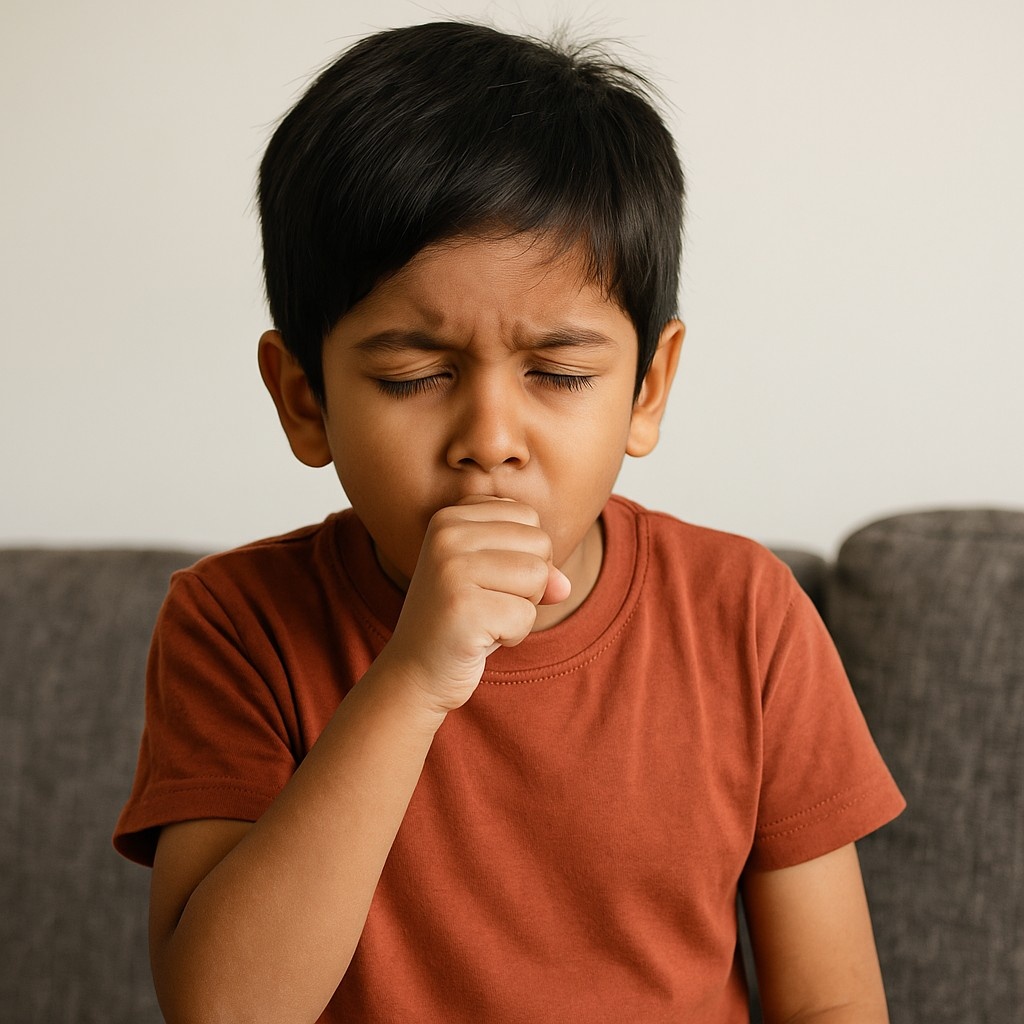Introduction
A persistent cough can be frustrating—especially when you don’t have a cold or flu. Often, the culprit isn’t an infection but an allergic reaction. Dust, pollen, pet dander, or even perfume can trigger your immune system, leading to throat irritation and coughing fits.
But should you reach for cough syrup right away? Not always. Let’s explore how to tell the difference between an allergic cough and an infectious cough, and when cough syrup can actually help.
1. How Allergies Trigger Coughing
An allergic cough happens when your immune system overreacts to harmless substances (allergens). This reaction causes inflammation in your airways and postnasal drip—mucus dripping down the throat—which leads to coughing.
Common allergy triggers include:
- Dust mites and mold spores
- Pollen from trees, grass, or flowers
- Animal dander
- Smoke and pollution
- Strong scents or cleaning chemicals
Unlike a viral cough, an allergic cough usually:
- Lasts for weeks or months
- Gets worse in certain environments
- Is dry (without mucus)
- Comes with sneezing, runny nose, or itchy eyes, but no fever
2. Allergic Cough vs. Infectious Cough
It’s easy to confuse an allergy-induced cough with a cold or flu, but their causes and treatments differ:
| Feature | Allergic Cough | Infectious Cough |
| Cause | Reaction to allergens | Virus or bacteria |
| Type | Usually dry | Often wet or phlegmy |
| Duration | Weeks to months | Usually 7–14 days |
| Other Symptoms | Itchy eyes, sneezing | |
| Treatment | Antihistamines, allergy control | Rest, fluids, sometimes antibiotics |
Understanding this difference helps you choose the right treatment—and avoid unnecessary cough syrup use.
3. When Cough Syrup Helps
Cough syrup can provide temporary relief, but it’s not always the solution.
Use it only if:
- Your cough is disrupting sleep or daily activities
- You’ve ruled out infection or asthma
- Your doctor recommends a non-drowsy suppressant or antihistamine-based syrup
Some cough syrups contain mild antihistamines or bronchodilators that ease airway irritation. These can help reduce throat tickle and improve comfort, especially at night.
4. When to Avoid Cough Syrup
Cough syrup might not help—or could even make symptoms worse—if your cough is purely allergic.
Avoid it if:
- Your cough is dry and due to postnasal drip
- You already take antihistamines or allergy medications
- The cough persists despite medication (you might need an inhaler or allergy shot)
In such cases, focus on treating the root cause—the allergy itself. Reducing allergen exposure and maintaining indoor air quality can make a bigger difference than any syrup.
5. Natural & Preventive Measures
To manage allergic coughs more effectively:
- Use air purifiers and change filters regularly
- Rinse nasal passages with saline spray
- Stay hydrated to thin mucus
- Keep pets and dust away from sleeping areas
- Discuss anti-allergy medications or immunotherapy with your doctor if symptoms persist
Conclusion
An allergic cough is your body’s way of saying your airways are irritated—not necessarily infected. While cough syrups can help in some cases, overusing them without identifying the cause may delay proper treatment.
Focus on managing your allergies, improving air quality, and consulting a healthcare professional to find lasting relief.
Remember: Not every cough needs syrup—sometimes, all it needs is cleaner air and the right allergy care.

